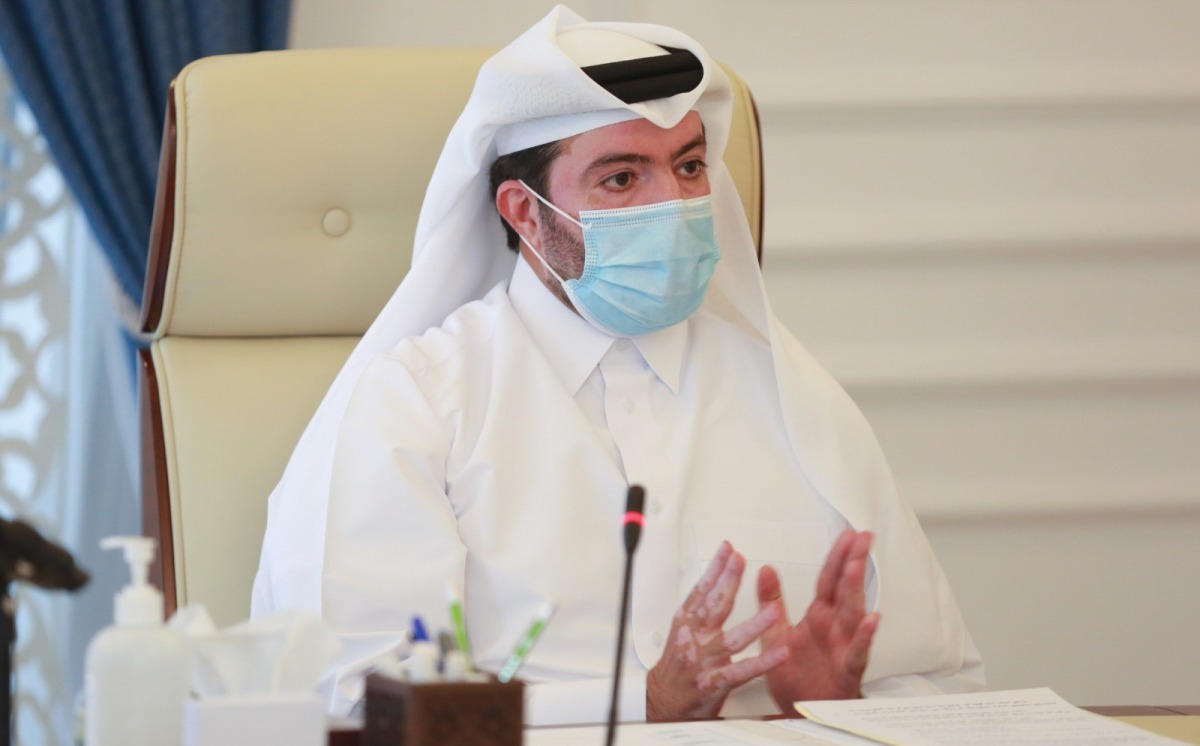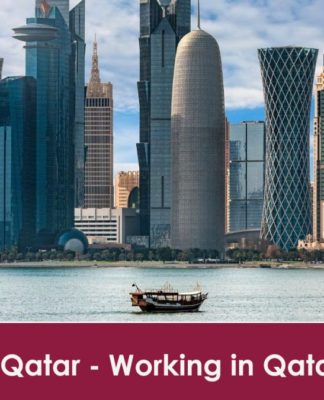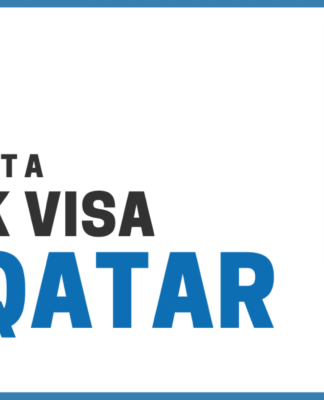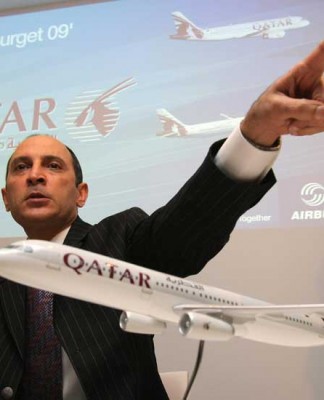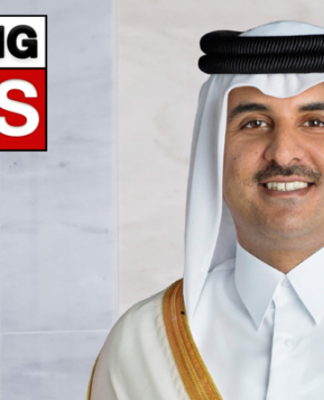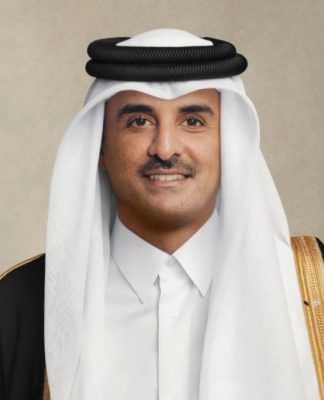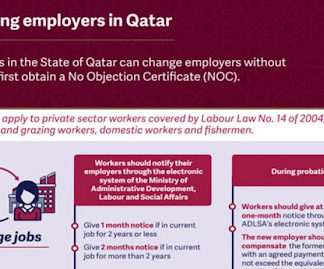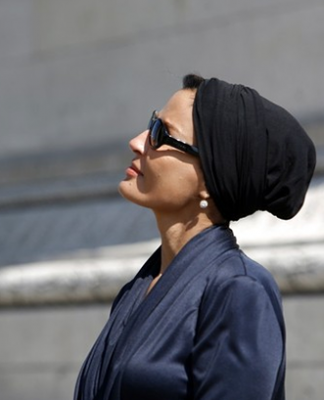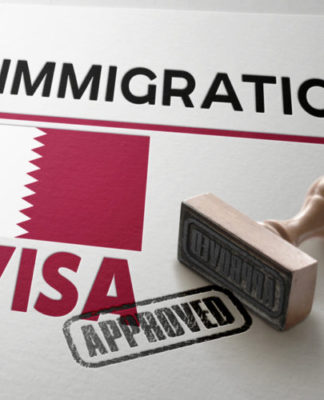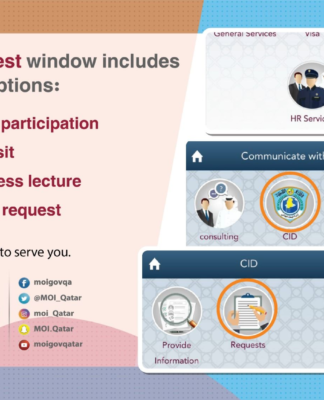Mr. Ghanem Mubarak Al-Kuwari, Assistant Undersecretary for Social Affairs at the Ministry of Administrative Development, Labor and Social Affairs confirmed that Decree-Law No. 21 of 2020 regarding private associations and institutions that was issued aims to give these entities more flexibility to achieve their goals and provide the appropriate environment for their work.
Mr. Ghanem Al-Kuwari said in a press conference held today at the Ministry to talk about the most important amendments contained in the decree-law that the ministry will communicate with the heads of the boards of directors of private societies and institutions to present the most important amendments included in Decree Law No. 21 of 2020 regarding private associations and institutions in more detail. And answering their inquiries.
He warned that the ministry aims to provide as much facilities as possible to private associations and institutions, which are keen to continue work and achievement to achieve national goals.
The Assistant Undersecretary for Social Affairs expressed his thanks and gratitude to the heads and members of boards of directors and general assemblies in all private societies and institutions for their important role in achieving partnership and cooperation between state institutions, associations and private institutions to achieve national development goals, and in appreciation of the role they play in providing many social services Scientific, cultural and professional, stressing that the Ministry of Administrative Development, Labor and Social Affairs is working continuously to support this partnership and provide a helping hand and support to these societal institutions because they represent a real support in the implementation of the ministry’s tasks and the real value they embody in social capital, as indicated by Qatar Vision 2030.
Mr. Ghanem Mubarak Al-Kuwari stated that Decree-Law No. 21 of 2020 that was issued aims to give private societies and institutions more flexibility to achieve their goals that are compatible with their objectives. It is expected that these amendments will contribute to providing the appropriate environment for their work, especially with regard to the procedures for registering associations By making it possible to authorize one of its members to take the procedures for registering and registering the association, adopting the national address in communication, and allowing the new member of the association to enjoy all of his rights without the need for six months to pass after joining the association, as was the case in the previous repealed law.
He explained that the amendments allowed the possible reasons for the rejection of the registration application to be shown, and provided flexibility in the value of fees incurred by private societies and institutions by a decision issued by the Minister, after the fees were specified by law, and the decree-law granted the authority to renew the license of associations by a decision issued by the Minister, in addition to allowing the space for associations and institutions For work in the educational field to the social, scientific, cultural and professional fields.
Al-Kuwari added that the amendments organized the mechanism for conducting the General Assembly elections to the Board of Directors, in a way that contributes to promoting equal opportunities among all members of the Association, and allows them to view the records of members who have the right to run and be elected, by publishing the Board of Directors a list of the names of the members who have fulfilled their obligations towards The association, at the association’s headquarters or its website, or both, at least sixty days before the date of the general assembly’s meetings.
He pointed out that the amendments also allowed formal communication between the association and its members by e-mail, while it was previously only by registered mail, in order to enhance communication between members and the association, keep abreast of technological development, and equal opportunities among members to attend General Assembly meetings and participate in elections, and the amendments stipulated the formation of The Election Commission is one of the association’s members, in a move that would achieve independence for associations in managing the election process for their boards of directors without the ministry’s interference.
Mr. Ghanem Mubarak Al-Kuwari, Assistant Undersecretary for Social Affairs at the Ministry of Administrative Development, Labor and Social Affairs pointed out that the new amendments clarify the terms of reference of the General Assembly in its regular and extraordinary meetings, and the right of each member to delegate another member to represent him in the meetings of the General Assembly, provided that the delegation is by proxy Official, prior to the date set for the meeting, and it is not permissible for a member to act on behalf of more than one member, or for a member of the Board of Directors to act on behalf of any other member, to limit interference with the will of members of the Free General Assembly in electing members of the Board of Directors. The Board of Directors shall elect from among its members a Chairman, Vice President, Secretary, and Treasurer.
And he indicated that the amendments will contribute to facilitating the practice of societies for their activities that are compatible with their objectives in its articles of association only under the Ministry’s notification, instead of prior authorization when they wish to participate or organize seminars, conferences, training courses or similar activities, in addition to that the amendments specified the period of time for societies to keep their records. Financial and administrative records and the types of records were clarified, which eases the burdens imposed on associations by keeping all types of records for an indefinite period. It also allowed members of the General Assembly to view all records of the association in a step that would achieve governance in the work of associations, and activate the General Assembly’s oversight of the Board of Directors.
Mubarak Ghanem Al-Kuwari, Assistant Undersecretary for Social Affairs, noted that the amendments also included a progression in the penalties imposed, and the possibility of holding a member or director accountable in the event of committing a violation that would offend the association, without punishing the association completely and allowing for reconciliation in the crimes stipulated in the law.
For his part, Mr. Naji Abd Rabbo Al-Ajji, Director of the Private Associations and Institutions Department at the Ministry of Labor and Social Affairs, affirmed that Decree-Law No. 21 of 2020 reflects the state’s keenness to manage diversity with regard to non-governmental organizations and the services they provide similar to and complementary to what the state provides.
He explained that the relationship between the ministry and associations is complementary in a way that serves the public interest of the state and provides services and allows flexibility for associations in their dealings with members or dealing with other institutions in a way that serves the public interest in the state and enriches the social, cultural, professional, scientific and educational activities provided by these societies.
He indicated that the associations provide the necessary funding for their continuation through the activities they provide and through the sponsors, members’ fees, honorary members, official entities and institutions, and the programs and activities they provide.
He added that the ministry is working with associations in a complementary manner, as the ministry has set up an exhibition for private societies, and a financial prize has been allocated for the best qualitative programs offered by associations in a way that encourages the provision of activities that serve the community.
The director of the Private Associations and Institutions Department pointed out that the new law gave freedom to associations in carrying out their activities, and the ministry’s role became to monitor activities, and to audit financial and administrative at a rate of once a year in order to achieve the goals for which it was established and to enhance the impact of associations in various specialties, goals and objectives.














